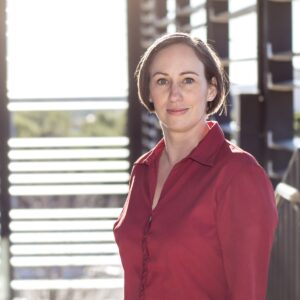World Menopause Day - Wednesday 18 October
Hot flushes, night sweats, brain fog, depression, anxiety and weight gain are just some of the many symptoms that women can suffer during their perimenopause and menopausal years.
Menopause occurs naturally when a woman's ovaries no longer have any eggs to release, and its symptoms are caused by a drop in hormone levels.
More than three million Australian women are currently in the 40-59 age bracket – the years that are most associated with menopause.
And more than two million women aged over 60 years are affected by biological changes post-menopause that increase lifelong risks of cardiovascular disease, dementia, diabetes, osteoporosis and some cancers.
Despite this natural prevalence, perimenopause and menopause remain hidden conditions, with 85% of Australian women who experience significant symptoms mostly undiagnosed, misdiagnosed, untreated, and/or mistreated.
More than 30% of Australian women will experience severe impacts on their general and psychological wellbeing, which can lead to breakdowns in relationships, mental health illnesses and decreased productivity both in work and home lives.

After unexpectedly experiencing the start of perimenopause, Associate Professor Erin Morton from Flinders University realised how little community awareness there was about this stage of life. She was concerned about the lack of knowledge and support available, and the impact of symptoms, costs and time commitments on daily tasks, employment and family budgets.
"Three years ago I realised I'd hit perimenopause and I was rather horrified at how little was known or seemed to being done about it," says Associate Professor Morton, Director of Flinder's Health Data & Clinical Trials unit.
"This is an area of health that is so neglected and is still really stigmatised. There seems to be a lack of knowledge across healthcare roles, poor access to services, negative attitudes and lagging research to support women through this important time of life. There is very little information and support available, not to mention a lot of misinformation about hormone replacement therapy."
Drawing on more than 20 years of clinical trial and health data expertise, Associate Professor Morton decided to take matters into her own hands and has created a registry that gathers information on Australians' experience of perimenopause and menopause.
The new registry is called VITAL (Virtual regIstry of peri-/menopause in AusTrALia) - and has a particular focus on exploring community priorities and creating tangible improvements in healthcare outcomes.
"VITAL is designed to provide the perimenopause and menopausal community with greater opportunities for involvement in their own care, and critically to collect key data that can be used to identify trends and improve research and education for measurable improvements in women's' health.
"I decided to create this community-driven registry to give a voice to the perimenopause and menopausal population; to define what peri really means, what really matters to them and its true – and hidden - impacts across the country.
"I believe there should be more focus and funding on women's lifelong health, and more attention made to improving their perimenopause and menopausal quality of life and subsequent health outcomes," adds Associate Professor Morton.
The online registry is officially registered with the World Health Organisation (WHO) and the Australian Commission on Safety & Quality in Healthcare clinical trials and registry platforms. It has received cross-party recommendations in both Federal Houses of Parliament during Women's Health Week recently.
VITAL is open to everyone – perimenopause and menopausal participants, family, friends, colleagues, healthcare providers and policymakers – at https://www.flinders.edu.au/research/vitalmeno






